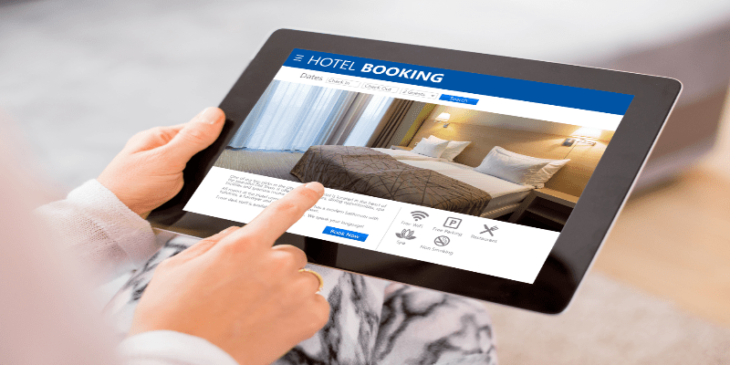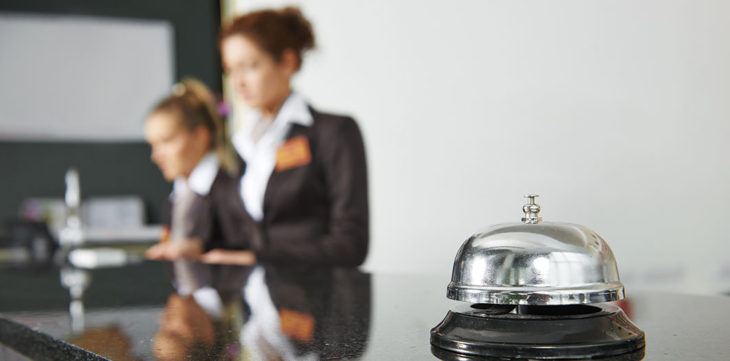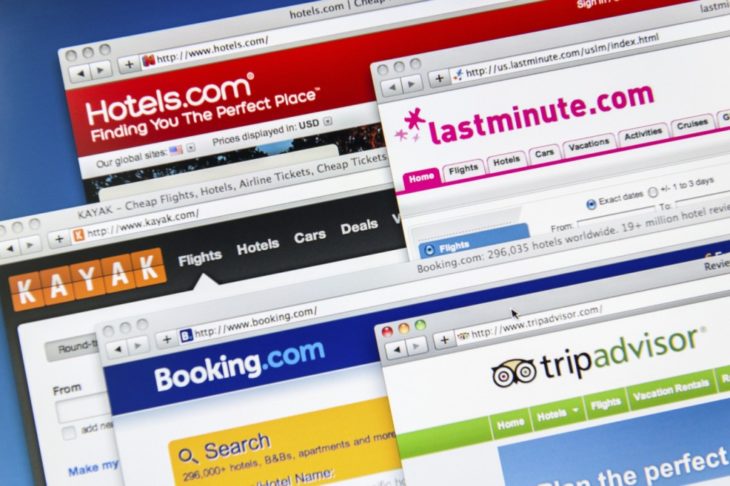According to the U.S. Small Business Administration, two-thirds of small business owners and entrepreneurs are personally responsible for three or more areas of their business, including marketing.
In an era of ever growing competition, it is essential to use as many marketing channels as possible in order to make the most out of your accommodation business. Here we present a few easy steps each small accommodation provider can take to improve their marketing and grow their business.

Source: RateGain
Contents
1. Make a commitment to marketing
One of the biggest hurdles small hotels, hostels and BnBs face when looking to improve their marketing efforts is simply making a commitment to good marketing. Without making that commitment, you’re bound not to meet your expectations.
In order to make a commitment, the first thing you should do is to set time aside. Big brands like Hilton, have dedicated marketing teams in the hundreds dealing with the day to day operations of their brands. We’re not suggesting for you to do the same, but even small hotels should dedicate a few hours each week to plan their social media marketing. Plan out 3-5 hours for pure content creation so that you can get back to running your business as usual. Using tools like HootSuite and TweetDeck can help you save time on scheduling your social media posts and leave you with more time to spend on your guests.
Two is to set clear goals. Research shows that you’re 42% more likely to achieve your goals and dreams, simply by writing them down on a regular basis. Write down specific marketing goals for your establishment that you would like to achieve over the coming month(s) and year. Common targets would be increasing your website visits, increasing your direct bookings, or increasing your social media followers.
Above all, you need to stay patient. All good things take time. Try not to fall into the trap of thinking good marketing happens overnight. Small businesses that play the long game are the ones that eventually reap the rewards.

Source: Are Morch
2. Setup an engaging hotel website
For many of your guests, your hotel website will be the first time they get acquainted with your brand. Make sure enough time is spent making the website engaging and informative, showcasing your property in the best light possible with high-quality photos.
Above all, you should make it useful for your guests. Your site should include a brief summary of the area, with highlights of important places to visit; information about recreation and outdoor activities; guides to arts and culture, including museums, theaters, and other attractions; and public transport information. Don’t forget to include the practicals, like getting to and from the airport/train station.
Finally, make sure to have the ability to accept bookings directly. Your website is also a sales tool, and tools like Wix and Bedvine can help you receive guest reservations instantly, manage your inventory and receive payments directly into your bank account.

Source: Figment Design
3. Drive repeat customers
A hotel loyalty program offering points or miles to guests when they stay with you can be a huge incentive and encourage guests to come back. Having an expensive points-based partner programme is not always accessible or even worthwhile for a small hotel. But it doesn’t have to be. Even the smallest of hotels can run a coupon or a voucher program off their next visit if guests book direct (via the website or over the phone).
Remember that finding new customers is more difficult than retaining the old ones, so focus on driving repeat visits from existing guests.

Source: Revenue Hub
4. Use OTAs
To maintain their dominance, OTAs spend a sizeable portion of their annual income on advertising. Booking.com alone spends $1bn on Google Ads annually. As a small hotel, your role is not to compete with Booking and Expedia and the hundreds of brands under those umbrellas, but to use them as a complement to your other marketing tactics. These companies have invested lots in building their extensive directory of hotels, and simply being listed can provide brand awareness.

Source: Heying & Associates
5. Stay in touch with email marketing
Other than the “booking confirmation” email, emails are often times forgotten by many small hotels.
Email marketing is an exceptional way for you to communicate directly with and market directly to potential and existing guests. It can help you increase bookings and leverage opportunities at every step of the guest’s journey.
Email marketing fosters loyalty from your guests and encourages return bookings. Don’t forget to send regular emails to your previous guests or those guests who have subscribed to your emails. Try to make these emails personalized to your customer base. For example, you can send a limited offer for reduced rates to encourage direct bookings. Or you can target everyone who lives within a three-hour radius with a special weekend getaway offer.
However, manual email marketing can be a tedious task. This is where popular email marketing tools can help. MailChimp and HubSpot are two of the most popular choices. They both feature free plans which are suitable for small business.
